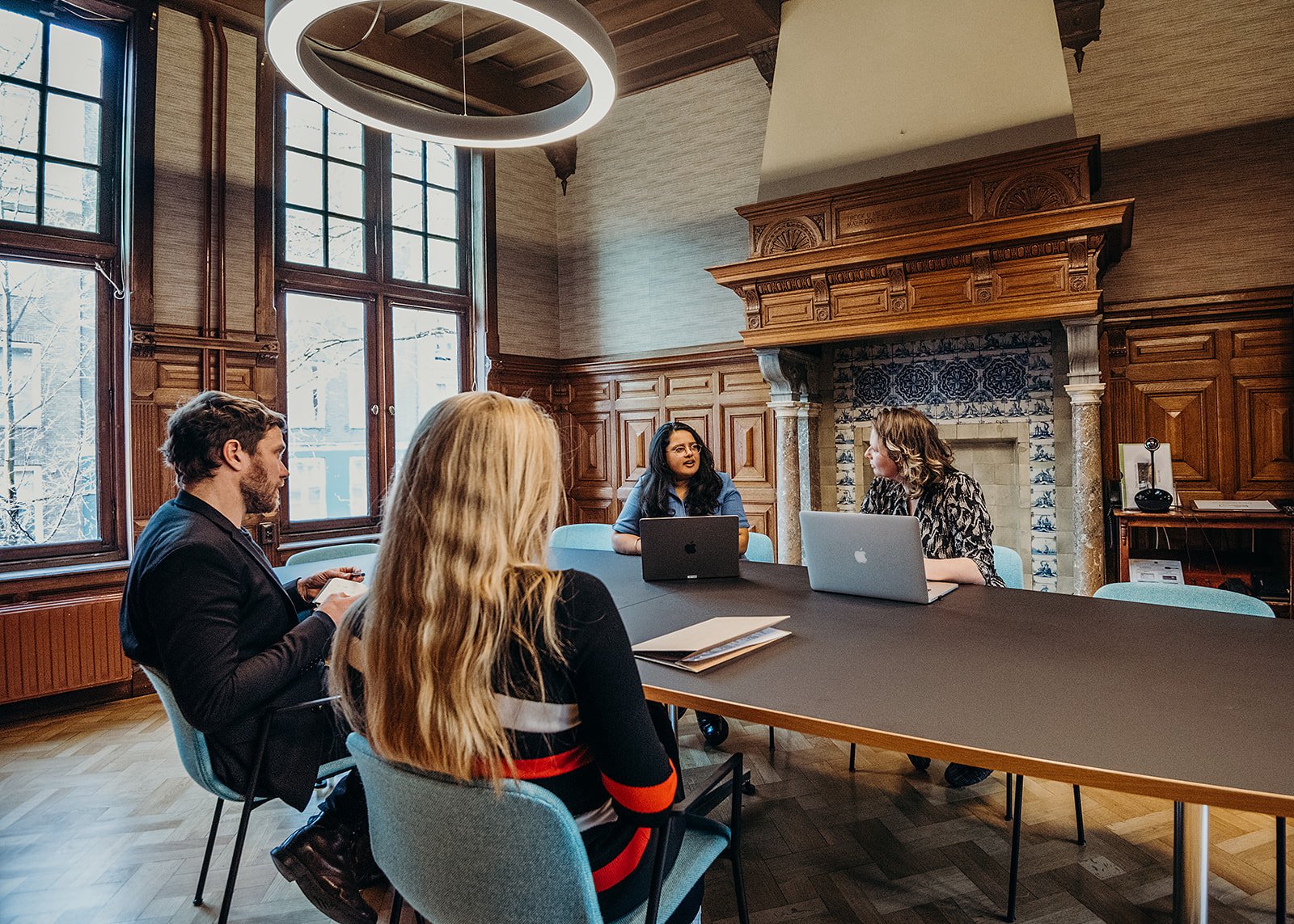Postdoctoral researcher SABIO DH-Lab - Humanities Cluster KNAW - Amsterdam
Postdoctoral researcher SABIO DH-Lab - Humanities Cluster KNAW - Amsterdam
You cannot apply for this job anymore (deadline was 5 Aug 2020).
Browse the current job offers or choose an item in the top navigation above.
Job description
For the SociAl BIas Observatory (SABIO) project, the KNAW Humanities Cluster is looking for a motivated researcher working on the intersection of language technology, semantic web and cultural heritage. The SABIO project is funded by the Dutch Digital Heritage Network and is aimed at investigating bias in the digital collections of the members of the network.
About this vacancy
In this project, we investigate how collection managers and curators create and add metadata to collection objects, and how bias in these metadata can be detected using statistical models. We aim to create a knowledge graph on top of existing collection databases that makes prejudices and imbalances in the data explicit such that they can be addressed, as well as taken into account by users of the data.
The appointed candidate will be embedded in the Digital Humanities Lab at the KNAW Humanities Cluster, and will collaborate closely with the Nationaal Museum van Wereldculturen (organisation responsible for Tropenmuseum, Museum Volkenkunde, Afrikamuseum en Wereldmuseum Rotterdam) and the Information Access group at Centrum Wiskunde & Informatica.
Background
Techniques from the field of artificial intelligence (AI) are increasingly applied in the analysis of cultural heritage collections. Recent advances in machine learning enable cultural heritage institutions and their users to enrich and reinterpret information about their objects. A major issue in artificial intelligence is understanding and dealing with bias; prejudices and imbalances in both data as well as the AI systems can hamper access to new, or less popular information or opinions.
In the SABIO project, we investigate the degree of bias in the collections of the Dutch Digital Heritage Network on three social/societal themes: Migration, Trade and Traditions.
The key responsibilities of the postdoctoral researcher in the SABIO project are to investigate and adapt AI techniques for the detection of bias in museum collections together with collection managers and curators. The appointed candidate will be responsible for disseminating the project results via publications, a prototype visualisation (in collaboration with a developer) and to museum professionals through a project workshop that s/he is to co-organise.
Specifications
- 32—38 hours per week
- €3746—€5127 per month
- Amsterdam View on Google Maps
Requirements
- A PhD in computational linguistics or digital humanities with a focus on machine learning.
- Outstanding research qualities and demonstrable research experience manifested in a high-quality PhD thesis and publications.
- A keen interest in interdisciplinary research.
- Excellent communication skills in English and preferably also Dutch.
- Proven organisational and administrative skills.
- Ability and willingness to work in a team.
- Experience with cultural heritage data is a plus.
Conditions of employment
Appointment
The appointment at the KNAW Humanities Cluster concerns an employment contract of 0,8-1,0 FTE for a period of 10 months. The project is expected to start in the autumn of 2020.
Terms of employment
The gross monthly salary is € 3.746,-- per month in the first year, rising to € 5.127,-- in the fourth year, based on a fulltime appointment. The salary is supplemented with an 8% holiday allowance and an 8.3% end-of-year bonus. The Collective Labour Agreement for Dutch Universities is applicable.
The Royal Academy of Science offers an attractive pension scheme, 6 weeks of holiday per year, the possibility to buy or sell holiday leave, as well as career development opportunities. Flexible hours and working from home are negotiable.
Employer
Humanities Cluster KNAW
The Humanities Cluster of the Royal Netherlands Academy of Arts and Sciences (KNAW) is a collaboration between three research institutes: the Huygens Institute for Dutch History, the International Institute for Social History (IISH) and the Meertens Institute for Dutch Language and Culture. The institutes are committed to groundbreaking research in the humanities, in which innovative (digital) methods play an important role.
Department
About the Dutch Digital Heritage Network
The Dutch Digital Heritage Network (Netwerk Digitaal Erfgoed) is a partnership in the Netherlands that focuses on developing a system of national facilities and services for improving the visibility, usability, and long-term preservation of digital heritage. The National Digital Heritage Strategy (https://www.netwerkdigitaalerfgoed.nl/wp-content/uploads/2018/10/20150608_Nationale_strategie_digitaal_erfgoed_Engels.pdf) informs the activities of the network. The network is open to all institutions and organisations in the digital heritage field. Together we can make the most of our digital heritage and preserve it for future generations.
Specifications
- Postdoc; Research, development, innovation
- Behaviour and society; Language and culture
- 32—38 hours per week
- €3746—€5127 per month
- Doctorate
- AT2020-087
:fill(white)/logos/knaw-en-wide.png)
